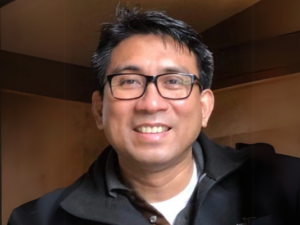This is my daughter Sophia’s Essay.
Moving from one country to another throughout my life has been interesting, to say the least. These past few weeks, learning and reading about how language and worldview are correlated has made me think if I actually look at the world differently than my friends who have lived in the same country or even the same town their whole life. It’s quite hard to believe that I have a different perspective than someone else because of my language background, but at the same time, no minds are alike.
When people ask me what my first language is, it’s kind of hard to answer because I was taught Tagalog, which is the main Philippine language, and English at the same time. In school, we were taught English, but at home, we mostly spoke Tagalog. People in the Philippines knew of English, but not a lot of people could speak it well, and I was one of those people who couldn’t speak it well. I could understand English, but when I spoke it, my sentences were broken; it was faster to answer in Tagalog. I mean, I was only 6, so my knowledge on words and sentences were still developing, but English was not my strongest language.
The transition from the Philippines to England was the hardest. I will never forget the stares I would get from my classmates because of my English; those looks felt degrading. I knew what I wanted to say, but forming the sentence in English was difficult. The Philippines taught American English, so it was hard to keep up with the different names England had for items. Pants were called trousers, a truck was called a lorry, trash was called rubbish, and so many more. I remember going up to my teacher and asking if I could go to the “CR” (or comfort room) which was what we called the bathroom in the Philippines. I stood there for 5 minutes with the urge to go to the bathroom because my teacher couldn’t figure out what it meant. I still kept up with my Tagalog because it was how my parents talked to me at home. They were, and still are, more comfortable speaking in Tagalog than English. To this day, my dad still tells people that he made sure my sister and I knew how to speak and understand Tagalog so if we were ever in trouble, he didn’t have to yell at us in English. My English got better throughout the years and I even gained a British accent, but we had to move again.
Moving to the US was a little easier, but names for items were switched again. Just as I was getting used to British English, I had to relearn American English. My first day of 3rd grade, the teacher asked what was placed at the end of the sentence and I confidently raised my hand and said “A full stop!” The whole class stared at me like I was crazy and the teacher asked if I meant a “period” and I just went with it. My classmates always picked me for popcorn reading because of my accent, but after a few months, my accent sadly disappeared. I was also picking up on American phrases like “under the weather” and “piece of cake.”
After being in the US for nearly 10 years, I do believe my English has gotten better. The only thing is, my vocabulary is not the best. I believe I have a very basic vocabulary. I struggle to write papers because it’s difficult for me to find specific words that sound sophisticated. I always wonder if I have a hard time because I’m bilingual, but I had a classmate who was born and raised in Vietnam and her English vocabulary was way more advanced than mine; it naturally came to her! Maybe it’s genetic, but I do wish words came to me effortlessly. I also often wonder if I had stayed in the Philippines, would my vocabulary be better? Would I know more complex Tagalog words? I am never going to know.
I can still speak and understand Tagalog which I am very proud of. I do admit though, it is slowly starting to go away. I have to think about it first before I say it out loud. If I had to explain what my Tagalog is starting to sound like, I would say it’s like an American, who has never learned or spoke a foreign language, trying to read Spanish. I don’t mean that in any way to be offensive. It’s embarrassing for me though when I try to talk to my family in the Philippines. My dad tells people he wants my sister and I to know Tagalog so he doesn’t have to yell in English for humor, but the actual reason is so we can communicate with our family in the Philippines. I do have cousins that can’t speak or understand Tagalog at all and it is so difficult for them to talk to family because of the language barrier. They can never have an actual conversation with aunts or uncles back at home. They try, but it doesn’t last very long.
One thing that I think is hard to explain as someone who can understand two languages are translations. Subtitles that translate tv shows or movies will never be satisfactory, especially on comedies. Translating a Tagalog comedy will never make sense in another language. It can be translated, but it won’t be funny. Humor is so unique and can’t be explained unless you have lived and experienced a country’s culture.
It’s amazing how each language is arbitrary from one another, which is how the textbook described it. My experience with language is a huge part of who I am. I still think it’s crazy how my brain can automatically interpret different languages and just know what they mean. The way that I have “adapted” to understand Tagalog and types of English has made me believe that my language has impacted the way I look at the world and it’s what makes my “linguistic identity.”
“Now glory be to God, by his mighty power at work within us is able to do far more than we would ever dare to ask or even dream of — infinitely beyond our highest prayers, desires, thoughts, or hopes.”
— Ephesians 3:20 (LB)

Fernando R Pacia
Mechanical Engineer. MBA. Servant Leader.
Son. Brother. Husband. Father.
His dedication to his family is exemplary. The love and support he shares with his wife and two daughters are the very source of his strength and inspiration. He also knows that leadership is best learned first at home.


